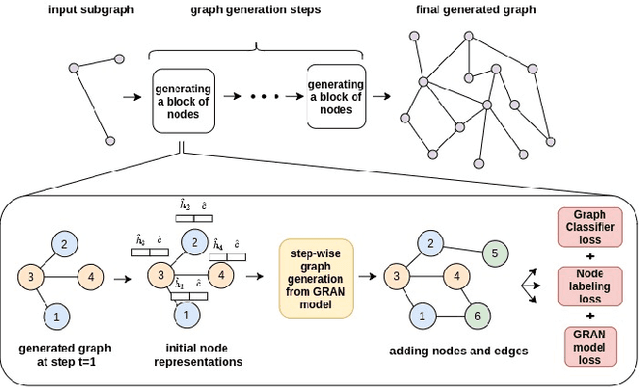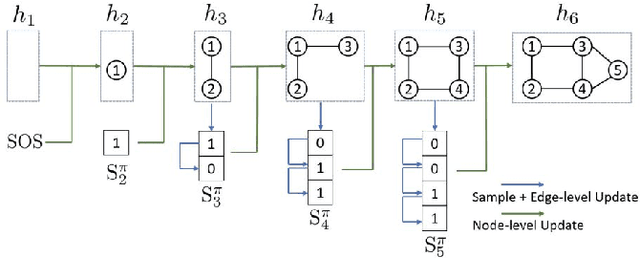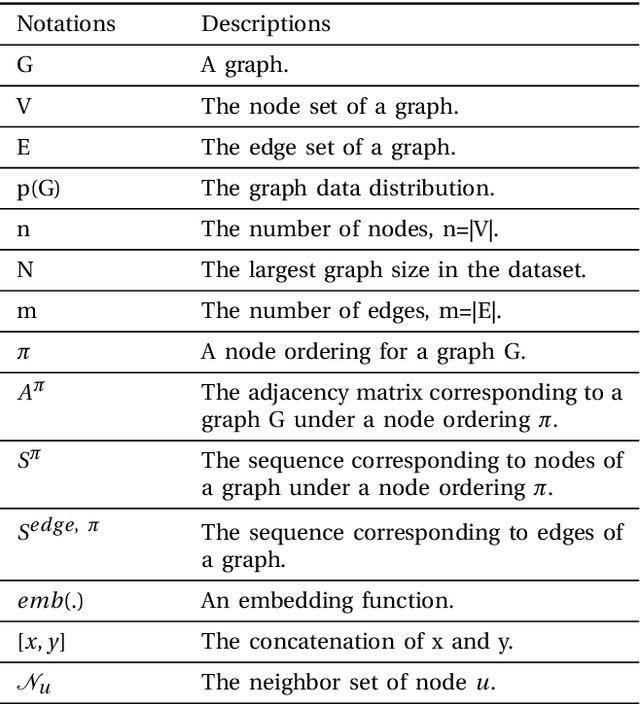Yassaman Ommi
CCGG: A Deep Autoregressive Model for Class-Conditional Graph Generation
Oct 07, 2021



Abstract:Graph data structures are fundamental for studying connected entities. With an increase in the number of applications where data is represented as graphs, the problem of graph generation has recently become a hot topic in many signal processing areas. However, despite its significance, conditional graph generation that creates graphs with desired features is relatively less explored in previous studies. This paper addresses the problem of class-conditional graph generation that uses class labels as generation constraints by introducing the Class Conditioned Graph Generator (CCGG). We built CCGG by adding the class information as an additional input to a graph generator model and including a classification loss in its total loss along with a gradient passing trick. Our experiments show that CCGG outperforms existing conditional graph generation methods on various datasets. It also manages to maintain the quality of the generated graphs in terms of distribution-based evaluation metrics.
Deep Graph Generators: A Survey
Dec 31, 2020



Abstract:Deep generative models have achieved great success in areas such as image, speech, and natural language processing in the past few years. Thanks to the advances in graph-based deep learning, and in particular graph representation learning, deep graph generation methods have recently emerged with new applications ranging from discovering novel molecular structures to modeling social networks. This paper conducts a comprehensive survey on deep learning-based graph generation approaches and classifies them into five broad categories, namely, autoregressive, autoencoder-based, RL-based, adversarial, and flow-based graph generators, providing the readers a detailed description of the methods in each class. We also present publicly available source codes, commonly used datasets, and the most widely utilized evaluation metrics. Finally, we highlight the existing challenges and discuss future research directions.
 Add to Chrome
Add to Chrome Add to Firefox
Add to Firefox Add to Edge
Add to Edge